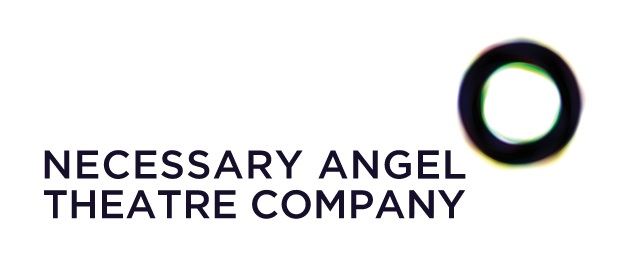All But Gone: A Beckett Rhapsody is Samuel Beckett like you've never quite seen him before. It stitches together four of Beckett's short plays – Act With Without Words I & II, Play and Ohio Impromptu — along with breathtaking contemporary music. It's a groundbreaking production that brings Necessary Angel's Artistic Director, Jennifer Tarver, back together with Musical Director Dáirine Ní Mheadhra, building on the previous success the pair enjoyed with Beckett: Feck It!
All But Gone is currently running at the Berkeley Street Theatre — and will be until November 6 — so we made sure to catch up with Dáirine to get the inside scoop on the unique production, and how her own Irish upbringing has influenced the way she sees the works of one of the most famous of all Irish playwrights.
How did you first get introduced to Beckett?
As I grew up in Ireland, I remember Beckett plays being programmed at the Gate Theatre in Dublin. In those early days I remember being aware of Samuel Beckett, but I was still too interested in boys and clothes to give him much thought!
What do you love most about his work?
I love all those fellas in his plays that just hang around for years and years and years. Waiting for... I don't know what. Dublin was awash with characters like that in the 1970s when I started working there, particularly outside the back of Neary's pub off Grafton Street. I always associate that laneway with Beckett characters, and sure enough years later, one of his plays was staged in this very laneway outside the pub. The general colour of Dublin in the '70s was sort of charcoal grey and sooty and I always imagine Beckett in that kind of hopeless half-light.
Why combine Beckett with music? What do you think it adds to the plays?
It's more combining Beckett with classical music. The initial impulse when we did the first round of the show was to combine Irish composers who were inspired by Beckett's work with his plays. Beckett loved classical music and was a good pianist. I found that some Irish composers had the same type of ridiculousness in their work that Beckett did, an Irish sense of humour expressed through music and I thought it would make an interesting juxtaposition.
Do you have a favourite moment in this show? Or one you think is particularly powerful?
My favourite moment is when [opera singers] Krisztina Szabó and Shannon Mercer are revealed in the urns with [actor] Jonathan Young. And I think to myself, I can't believe these two opera singers are actually going to perform Play, and they do, and I think it's fantastic. I've never come across such flexible, open opera singers, which is of course why we cast them.
Why do you think those particular performers — Szabó and Mercer — are well suited to this particular production?
Because they are highly developed performers with an unbelievably open attitude and fabulous music skills which allows them to sing one minute and be an actor in an urn the next.
What makes this show different from Beckett: Feck It!? How have the ideas evolved since then?
Jennifer really wanted to revisit the original Beckett show and it was she who came up with the Saariaho songs [featured in All But Gone]. The plays have largely stayed the same, with the addition of Act Without Words I. She also had imagined a very clear through line in the production to bring an audience smoothly through the evening, which I think she achieved extremely well.
Do you think there’s anything unique about presenting this show in Toronto? Do you think there’s any difference presenting All But Gone to a Canadian audience as opposed to, say, an Irish one?
I think it's very different presenting a show in Toronto as opposed to Ireland. Irish people don't approach Beckett with the same reverence, but then they don't approach anything with reverence, which is what the Irish sense of humour is.
I got flak for calling the show Beckett: Feck It! No-one in Ireland would have batted an eyelid at that title. The word "feck" is an integral part of everyday conversation there, and it's cousin the other F word is even more popular.
All But Gone: A Beckett Rhapsody runs from October 11 to November 6 at the Berkeley Street Theatre. You can book your tickets now.









